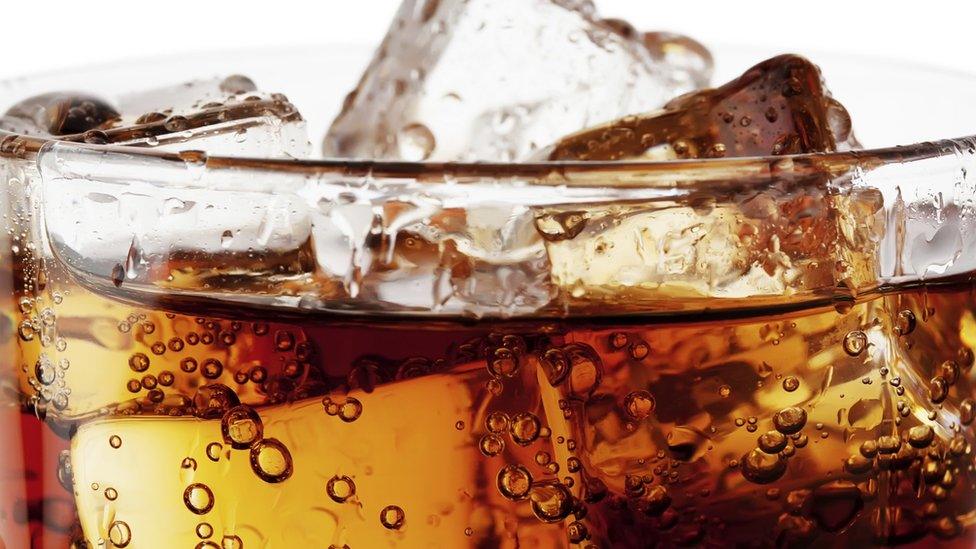UK pushes ahead with sugar tax
- Published

The UK government has published draft legislation for a tax on sugar-sweetened drinks, which is set to begin from April 2018.
There will be two bands - one for soft drinks with more than 5g of sugar per 100ml and a higher one for drinks with more than 8g per 100ml.
Ministers hope it will help tackle the nation's obesity problem.
Many companies have already begun cutting the amount of sugar in their drinks.
Pure fruit juices will be exempt - but health officials stress people should limit consumption of these beverages to no more than 150ml per day.
Likewise, sugary milkshake and yogurt drinks will also be excluded.
Ministers were concerned that teenagers, particularly girls, were not getting enough calcium and so taxing these drinks might be counterproductive.
The government has said it expects the levy to raise ┬ú520│¥ in the first year.
The Office for Budget Responsibility estimates the levy could add 18p to 24p to the price of a litre of fizzy drink if the full cost is passed on to the consumer.
This amounts to an extra 6p on a regular can of Fanta and Sprite, and an extra 8p on a regular can of Coca-Cola, Pepsi and Irn-Bru.
Health campaigners have broadly welcomed the initiative.
Dr Max Davie, of the Royal College of Paediatrics and Child Health, said: "We are very pleased to see government moving forward with this draft legislation.
"The sugary drinks that will be affected by this tax have no nutritional benefit and often contain levels of sugar that are above a child's daily recommended limit.
"These drinks are a major contributor to the high sugar intakes of children, particularly teenagers, and we are in no doubt that they are, in part, contributing to this country's obesity crisis."
Sugar in fizzy drinks
35g
The amount of sugar in a 330ml can of Coca-Cola (7 teaspoons)
30g
The recommended max. intake of sugar per day for those aged 11+
-
┬ú520│¥ The amount George Osborne expects the sugar tax to raise
Cancer Research UK estimates a 20% tax on sugary drinks could prevent 3.7 million cases of obesity over the next decade - something the soft drinks industry rejects.
Gavin Partington, of the British Soft Drinks Association, said: "There is no evidence worldwide that taxes of this sort reduce obesity, and it is ironic that soft drinks are being singled out for tax when we've led the way in reducing sugar intake, down over 17% since 2012.
"We're also the only category to have set a 20% calorie reduction target for 2020."
- Published16 March 2016